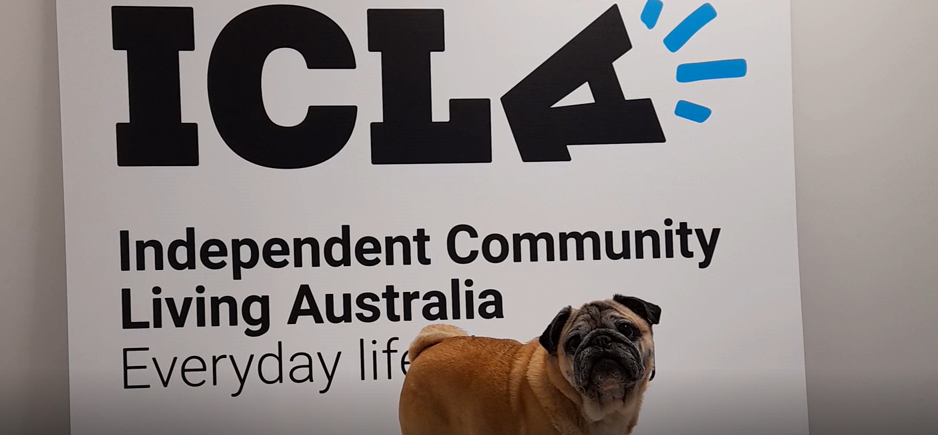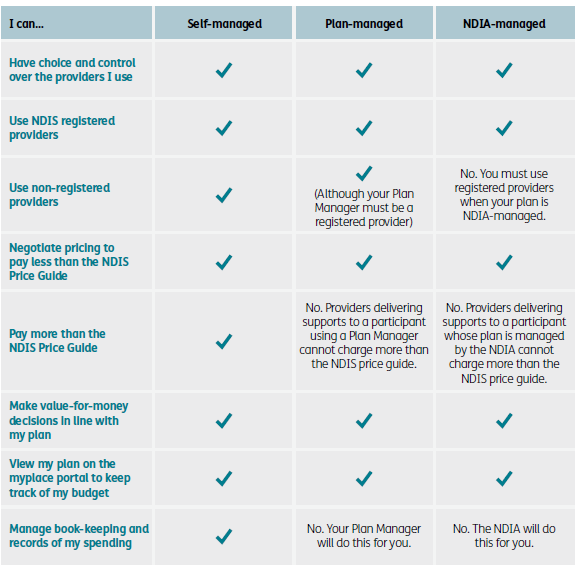
Thanks for joining us in our Embark blogpost series, where we share some of our tips for supporting people to access the NDIS. Embark provides support to people with disability living in the Sydney Metropolitan area that are living with a mental health condition and experiencing (or at risk of) homelessness, to access the NDIS. [You can make a referral to our free service via: www.icla.org.au/embark/]
You can also get in touch for support – via Embark Upskill, we facilitate free workshops across NSW, open to anyone who wants to improve their confidence and understanding of the NDIS in order to support people with a mental illness to access the NDIS and obtain the supports they need. [Make an enquiry via: www.icla.org.au/embark/upskill]
“The NDIS is only for people with a physical disability” – “The NDIS will take away my pension, I’m not interested” – “The NDIS will take away my choice about how i want to live my life, why I would I want that?”
These are the just few of the many common myths of the NDIS and its operations for people living with psychosocial disability in Australia.
The NDIS is a relatively new scheme, and to this day there is confusion across multiple organizations, individuals, and people within our communities about what the NDIS is, who it is for and how it can be super supportive.
In this blog, we aim to focus on some of the common themes/misunderstandings about and around the NDIS, provide some clarity about what it can do, and, how it can help you, or the people you are supporting live to their full potential.
The most common misconception that we hear form our participants at Embark is ”The NDIS is only for people with a physical disability – it can’t help me” – thankfully in reality, this is not true. At the time of writing this blog, 11% of the total participants accessing the NDIS experience psychosocial disability, 33% have a primary diagnosis of Autism, and 19% have accessed the scheme due to intellectual disability/cognitive impairments. While the fit between NDIS and psychosocial disability supports and services are still not where they need to be, there is definitely a shift of de-stigmatizing the need for NDIS supports for vulnerable individuals within our communities who are experiencing psychosocial disability.
Another misconception that we hear from our participants here at Embark is ”The NDIS doesn’t give me any money, pay for my bills, or help me buy the things I need – why would I need it?” Whilstthere is some truth to this statement, it’s also not entirely accurate. Yes, the NDIS won’t be able pay for things such as groceries, utility bills, and other everyday things that we all need to pay in our day-to-day lives. However, the NDIS will provide funding for things that align with the criteria of being“Reasonable & Necessary” and “Disability Related.”
Let’s look at the example of going to the grocery store to pick up some food for the week – While this seems like a relatively straight forward activity for most, individuals living with complex mental health and psychosocial disability may experience significant difficulties with completing this – for a range of reasons related to their psychosocial disability. For example, figuring out what food we want for the week may be challenging due to cognitive processing issues, getting to the grocery store could be challenging due to anxiety, as could navigating around the crowded shopping centre.
The NDIS can assist individuals with challenges like this in a range of ways. For example, the NDIS can pay for support workers to accompany the person so they have emotional support during the grocery shop, and help to plan the shopping list before they get there. They might pay for occupational therapy assessments to create plans that the participant and support workers can implement together to minimise the impacts of their disability on the weekly shop.. Now this may seem like a small and irrelevant support for some, but for others living with complex mental health and/or psychosocial disability – it can be massive! Understanding that someone is there to support with transport can be a big relief – and can also end up saving the person funds . A lot of the time its the little things that people without disability might not take notice of that the NDIS can step in to and be a big support for participants.
Another huge misconception that we hear a lot regarding the NDIS here at Embark is ”The NDIS will take away my choice about who I want to support me.‘- This one couldn’t be further from the truth! You have the right to choose who provides your supports, how you receive supports and when you receive supports. You also have the right to control your own life, how you live, where you live and how you spend your time. This means you don’t have to use a provider if you feel they aren’t acting in your best interests, or even if you just want to try something new. You can also ask if a provider has a conflict of interest with the way you want supports delivered. No provider can pressure you to buy services or supports you don’t want or need, you will pay for supports at a fair and reasonable rate and you decide what personal information you give to a provider. When the individual has choice and control over their disability services and living situation, they will get the most out of all supports, and their rights to dignity and respect are upheld.
Lastly, another common thing that we hear a lot is ”’Once accepted on to the scheme, I can only use registered providers / I’m not able to maintain my current supports.” Again, this isn’t entirely true. The NDIS offers every new participant of the scheme an option of how they would like to manage their funding. These options are :
- Agency Managed
- Plan Managed
- Self-Managed
Now all of this sounds confusing, and at times seems intentionally misleading! Though the table below should clear this up!

As you can see, the three options above show the differences and ways that participants can manage their plan. By using and requesting plan management for a new participant, you are able to use non-registered NDIS providers. Now this helps in several ways, giving participants significant;ly more flexibility in their choice of providers, including ones that they have previously accessed.. The flexibility of plan management allows the focus to remain on the important stuff – the support!
Now, while this is more generalized data across the NDIS – We do hope it serves the purpose of explaining to a participant how the NDIS can help them. Yes, it won’t be able to pay for everyday living essentials, food, holidays, medications, or general living expenses. It also won’t be able to provide you with direct cash like the disability support pension. What the NDIS can do is support you to make these things happen with support! 🙂
MORE RESOURCES
- See our ‘News and resources’ section here – https://icla.org.au/embark/access/
- Support for GPs and other health professionals – https://www.ndis.gov.au/applying-access-ndis/how-apply/information-gps-and-health-professionals
- Supporting evidence for psychosocial disability – https://reimagine.today/apply-for-ndis-support/providing-supporting-evidence/
- Get support from a Local Area Coordinator – https://www.ndis.gov.au/understanding/what-ndis/whos-rolling-out-ndis/lac-partners-community
Thanks again for joining us. Please be in touch with any questions or suggested topics for future content via embark@icla.org.au.
ICLA’s Embark program is funded by the NSW Ministry of Health to support people with a mental health condition who are experiencing, or at risk of, homelessness to access the NDIS.


Recent Comments